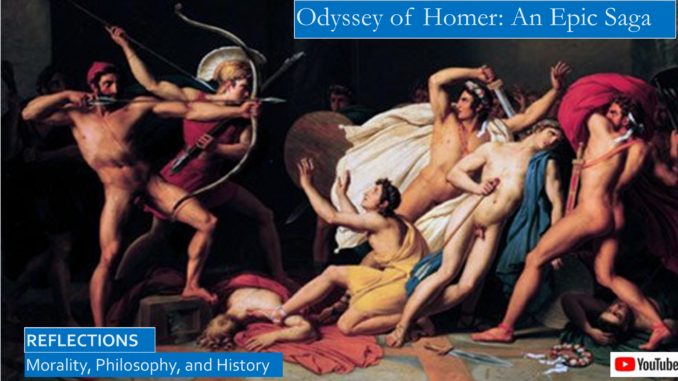
Homer’s Odyssey is the story around the forced ten years wanderings of Odysseus after the sack of Troy in the Trojan War. The Greeks committed many acts of hubris during the sack of Troy: Hector’s infant son was thrown down from the walls of Troy, King Priam’s daughter was raped when she sought sanctuary in the temple of Athena, and Priam himself was killed at his household altar. These acts of hubris angered the gods, and made the Greeks’ voyage home long and hazardous.
Dante in his Inferno encounters Odysseus (Ulysses in Latin) in the eighth circle of hell where the evil counselors are tormented for suggesting to the Greeks that the Trojan Horse hiding the most valiant Greek warriors be constructed and be given to the Trojans as a parting gift while the Greek fleet appeared to sail away.[1]
We do know that the Odyssey is about a homecoming long delayed by the anger of the gods for the many acts of hubris committed during the sack of Troy. Was the offering to the Trojans of the Trojan Horse the first act of hubris? Few commentators speculate that it is, but a good argument could be made that since both the Iliad and the Odyssey both simultaneously celebrate the warriors and bemoan the consequences of war, that Homer himself sees the false gift of the Trojan horse as initiating the excess of hubris in the sack of Troy. Would Homer agreed with Dante’s placement of Odysseus?
The YouTube video for the Odyssey is: https://youtu.be/bUW4ZT9zpt8
The YouTube script includes more book links: https://www.slideshare.net/BruceStrom1/odyssey-by-homer-adventures-of-odysseus
The Odyssey begins: “Tell of the storm-tossed man, O Muse, who wandered long after he sacked the sacred citadel of Troy.” In Greek the first word is “andra” or man, followed by “polu-tropos,” which other translations render as man of many turnings. Professor Vandiver explains that in other translations speak of Odysseus as the man of many turns and man of many ways, someone who is clever and who can quickly think on his feet and talk his way out of any situation.
Just as the Iliad revolved around the need to show hospitality and respect to the enemy who had courage to enter your camp, often to ransom his relatives, or to fetch their bodies for a proper burial, so the Odyssey revolves around the need to show hospitality to strangers. Travel in the ancient world was arduous and hazardous, and if you did not show hospitality to stranger, or what the Greeks called xenia, the stranger could die.
Professor Vandiver explains, “Xenia is usually translated ‘guest-host relationship.’ It is a reciprocal relationship between two xenoi—a word which means guest, host, stranger, friend, and foreigner. Xenia is not based on friendship, but rather on obligation. It works only if each side does not violate the terms of xenia. To do so is to offend Zeus himself. Throughout the Odyssey, Odysseus’ homecoming and regaining of his family and kingdom are either helped or hindered by the kind of xenia he meets on his journeys.”
When possible, the guest would bring gifts and later reciprocate and be the host in future travels, and these guest-host relationships could last for generations. The host provided the guest with a safe place to stay. Often when there were conflicts between city-states that required negotiations, the guest from the distant city would serve as an ancient ambassador and the home of the host would serve as an ancient embassy.[2]
When a stranger arrived you would first offer him food and drink, perhaps let him take a bath to refresh himself, and if he were tired let him get a good night sleep, and only then could you ask him where he was from and why he was traveling.
This hospitality was also shown by Vikings to strangers. When they led raids in their longboats they were the most vicious and cruel warriors, but for those strangers who dared to venture into their Scandinavian heartland were always shown hospitality.[3] The Greek culture was a warrior culture, they had more in common with the Vikings than most modern readers realize.
THE ODYSSEY OF TELEMACHUS
The tale of the Odyssey begins with a meeting of the gods to discuss the fate of Odysseus, who was trapped by the potent nymph Calypso, who sought to make him her immortal lover, but all day every day Odysseus wept on the seashore longing to return home to his beloved Penelope. Zeus addresses the gods on Mount Olympus, “Lo, how men blame the gods! From us, they say, comes evil. But through their own perversity, and more than is their due, they meet with sorrow.” So little changes, we do not repent, we do not see how we cause our own suffering, instead we become angry at God.
Athena, daughter of Zeus alone, appealed to the gods to send Hermes to convince Calypso to let Odysseus go, and to help him prepare for the journey home.
Odysseus has been gone for twenty years. What has happened to him? Nobody knows. Penelope, his wife, is in a quandary. Should she wait for his return? Should she remarry? The eligible suitors in his kingdom, the sons whose fathers perished in Troy and the trip back home, have no doubts, the suitors want Penelope to choose who among them will take over the palace and her, too, since she comes with the palace.
These suitors have no sense of xenia. These hundred plus suitors behave like turkey vultures, sulking around the palace, unwelcome parasites who “continually butcher the huddling flocks and slow-paced, crooked-horned oxen” that belong to the absent Odysseus. For three whole years Penelope has put them off, but the vultures are becoming impatient.
Athena announces to the gods, “I go to Ithaca to rouse the son of Odysseus and to put vigor in his breast.” She puts on her immortal sandals and ponderous shield and bounds to the land of Ithaca, to the palace of Odysseus, posing as a stranger needing hospitality, seeking Telemachus, son of Odysseus, who was but a toddler when Odysseus set sail for Troy with all the men of Ithaca. Telemachus sees the disguised Athena, saying, “Hail, stranger, here with us you shall be welcome, and after you have tasted food you shall make known your needs.” She was led to a table separate from the suitors and offered bread and plates of meat of all kinds and wine in golden goblets.
Athena could have told Telemachus what she knew of Odysseus’ fate, but she wanted him to get some backbone and stature by standing up to the suitors. She posed as Menes, lord of a ship seeking Odysseus, and encouraged Telemachus to call a council of the Achaean Lords to condemn the behavior of the suitors, which he did, though as they sympathized with the suitors. Then she encouraged him to get a ship with twenty good men to sail to Pylos to meet with Nestor and Menelaus to inquire about the fate of Odysseus.
Telemachus had stood up to the suitors, and now he was embarking on an Odyssey of his own. From Nestor he learned that Agamemnon had been killed on his return home by his wife and her new lover.
When they visited the palace of Menelaus, Telemachus heard of the deeds of his father Odysseus. First the beautiful Helen, wife first of Menelaus than stolen away with Paris of Troy, the Paris that the Iliad tells us lost the respect and love of Helen for his cowardice, tells how Odysseus had convincingly posed as a beggar to spy on the city of Troy, and how only she spotted him, and he told her of the plans of the Achaeans. Helen remembered, “my soul was glad, for my heart already turned toward going home, and I would mourn the blindness Aphrodite brought when she lured me thither from my native land and bad me leave my daughter, my chamber, and my husband.”
The Trojan War was won by the deception and wiliness of Odysseus, he suggested that the Greeks build a wooden Trojan horse to leave as a peace offering before the Greeks sailed off to hide behind an island near Troy.
Then Menelaus turned to Helen, remembering how he and a handful of other Achaean warriors were waiting inside the Trojan horse brought into the city of Troy, waiting for nightfall, when they heard Helen “walking around our hollow ambush, touching it here and there, calling by name the Achaean chiefs, feigning the voice of every Argive’s wife. Now I and the son of Tydeus and royal Odysseus, crouched in the middle, heard your call, and we too, starting up, were minded to go forth, or else to answer straightaway from within; but Odysseus held us back and stayed our madness.”
How odd were these memories! Helen had trouble choosing between returning to her husband and native land whom she had betrayed, and betraying thousands of Trojans, who would be slaughtered and plundered and enslaved during the sack of Troy. Such tangled webs we lead, in life sometimes we have no good choices.
These chapters end with the suitors scheming to arm a ship and lay in wait to ambush Telemachus on his way home.[4]
Odyssey Blog 2 http://www.seekingvirtueandwisdom.com/odyssey-blog-2-odysseus-sings-his-adventures/
[1] Dante Alighieri, “The Divine Comedy, The Inferno, Purgatorio, and Paradiso,” translated by John Ciardi (New York: New American Library, 2003), Canto XXVI of the Inferno, pp. 205-208.
[2] Elizabeth Vandiver, “The Odyssey of Homer,” lectures recorded by The Great Courses, (www.thegreatcourses.com, 1999), lecture 2, quotations are mostly from the study guide.
[3] Kenneth Harl, “The Vikings,” ,” lectures recorded by The Great Courses, (www.thegreatcourses.com, 2005), probably lecture 34.
[4] Homer, “The Odyssey,” translated by George Herbert Palmer (New York: Barnes and Noble Classics, 2003), Books I-IV, pp. 1-56.

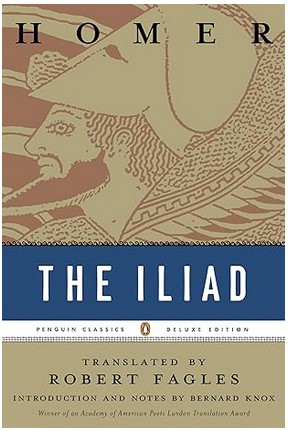

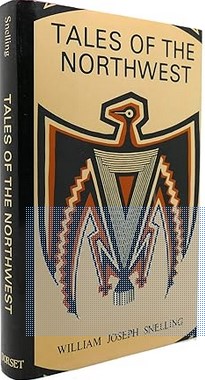

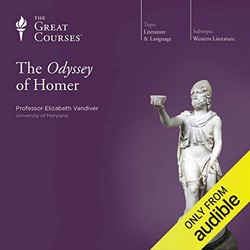
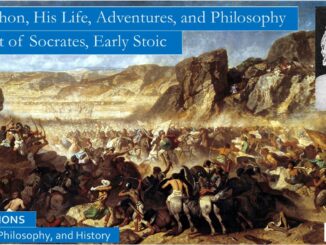
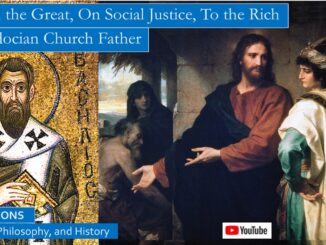
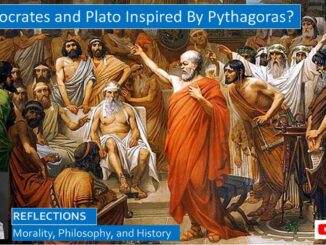
9 Trackbacks / Pingbacks